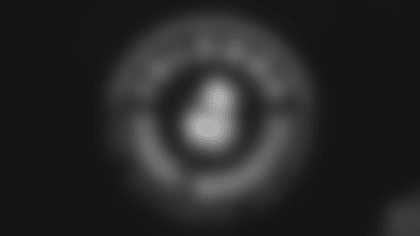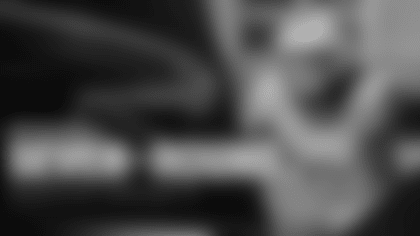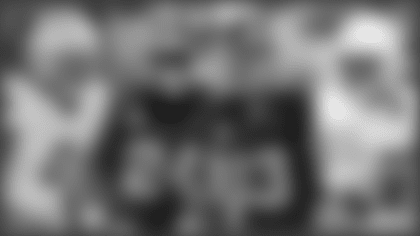ATLANTA -- There's an ebb and flow in any game, but in the Falcons 20-17 loss to the Chargers on Sunday the ebb in play seemed to overpower any flow the Falcons offense and defense could get into.
Arthur Smith talked about this very idea after the game, using the first quarter production compared to the lack of production in the second quarter as the example.
RELATED CONTENT:
Smith said the Falcons got the start they wanted, and looking back they absolutely did.
In the first quarter, the Falcons totaled 145 yards of offense on 21 plays, ultimately scoring 10 points to take the lead. In comparison, the Chargers weren't anywhere close (which is a nod to the defense's hot start, too). Los Angeles had 16 total yards of offense on just five plays.
And what was the time of possession in that quarter you may ask? Extremely lopsided, with Atlanta holding onto possession for almost 13 minutes of a 15-minute quarter.
"You feel like you have the momentum and that you have them on the ropes a little bit," Smith said of that first quarter start.
As the second quarter began, though, the Falcons offense and defense began to ebb.
By the time both teams were heading to the locker room for halftime, the narrative of the game had flipped on its head.
For as productive as the Falcons were in the first quarter, that became the Chargers in the second. In fact, the Falcons had -5 total yards in the second quarter (yes, negative five). Meanwhile, the Chargers came charging back with a 166-yard performance in that quarter, taking the 14-10 lead into halftime.
This is the ebb and flow Smith and players were referring to. The way Smith described it after the game, though, displayed how he felt like this pattern happened through the game's entirety, not just in the first half.
"This game right here, there's an ebb and flow," Smith said. "First quarter," his arm goes up, "second quarter," his arm motions downward, "third quarter," arm goes up again, "and then down the stretch," down again. "They made one more play than we did and that was the difference in the game."
However, I don't think I agree with that. I'd argue it wasn't that the Chargers made just one more play in the game than the Falcons did. It wasn't one play that made the difference in the game, and players said so in the locker room. It was the accumulation of the plays that ebbed. That was the difference. There were a handful of plays to point to, and the game essentially boiled down to the Falcons not making a multitude of plays on offense, defense and special teams.
For every play you can point to that may or may not have won the Chargers the game, you could point to a handful of others that lost the Falcons the game. Twitter will tell you it was Ta'Quon Graham's fumble-from-a-fumble-recovery in the final minute of the game that lost the Falcons the game.
And while, yes, he shouldn't have fumbled the ball, the offense shouldn't have gone three-and-out when they got the ball back with a little over five minutes to go in the game...
... and the defense shouldn't have allowed the Chargers to convert all but three of their third downs in the second and fourth quarter combined...
And what happened of the three they didn't convert you may be asking? One ended in a fourth and five that the Chargers did convert. One ended on a field goal that tied the game. And the final one ended on a stop, a fumble that Graham picked up and fumbled at midfield. All three were actually very productive for the Chargers in a different way.
If you're asking me, that's the difference in the game, right? These very specific third down situations. I'll stand by this even looking at the game book, too, which shows the Chargers converted 50 percent of their third downs, and the Falcons converted 45 percent of theirs. It was much closer statistically than maybe anyone originally thought. However, it didn't feel similar in the flow (or ebb) in the game.

The first person to bring this up was Smith himself: "What it comes down to is third down."
Players would go on to add their two cents on this topic, too.
"When it comes down to it, this game is always going to be won or lost on third down," Marcus Mariota said. "And when you're not converting these third downs and the flip side is they're getting these long drives, and they make the plays when they needed to, unfortunately you're going to find yourself losing them."
After the game, Mykal Walker also had much to say about the Falcons defensive issues on third down.
The Falcons, he said, don't have a problem getting teams in third down situations. Not at all. They have a problem keeping opponents from converting. It's something that has hung over this defense for the last two (if not three) weeks.
"We get to third down. We're a team that gets to third down a lot, but we gotta win," Walker said. "That's the mentality, that we have to flip that switch. Every time we get to a third down we gotta make a big play to win that down. That's something that players are going to have to get figured out. We have the right guys to do. We just have to get it figured out."
Until they do, when the Falcons ebb, that decline will continue to keep them from flowing down the stretch of a close game, which is exactly what happened in Sunday's loss.
"It's a tough pill to swallow but I believe in our guys," Richie Grant said. "That's one that got away. But I believe in our guys and am confident we'll do better if we're put in that situation again."















